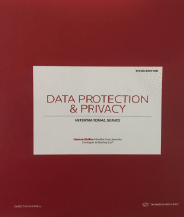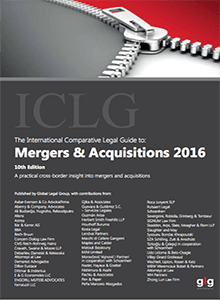Newsletter february 2025

Superior Tribunal of Medellín – Civil Chamber – Judgment on Interruption of the Statute of Limitations for Contractual Liability Actions
By means of a judgment dated July 16, 2024, the Civil Chamber of the Superior Tribunal of Medellín ruled that the statute of limitations for an action derived from a transportation contract is two (2) years and may be suspended by the filing of a request for extrajudicial conciliation, thereby extending the period until its conclusion.
The plaintiff sought to hold the defendants contractually, extra-contractually, and jointly liable for the damages suffered as a passenger in a traffic accident involving the vehicle. In response, the defendants raised the defense of extinctive prescription, arguing that the lawsuit was filed more than two (2) years after the transportation obligation should have concluded (August 17, 2016).
Article 993 of the Commercial Code provides that “Direct or indirect actions arising from a transportation contract are subject to a statute of limitations of two years. The limitation period shall begin to run from the day on which the transportation obligation has concluded or should have concluded. This term cannot be modified by the parties.”
The plaintiff contended that the filing of the request for a conciliation hearing, considering the suspension period agreed upon by the parties, effectively interrupted the statute of limitations set forth in Article 993 of the Commercial Code.
The judge concluded that, although Article 993 of the Commercial Code establishes a two (2) year limitation period, which would have run from August 17, 2016, to August 17, 2018, the plaintiff’s request for a conciliation hearing on August 17, 2018, in conjunction with Article 21 of Law 640 of 2001, led to the suspension of the statute of limitations on the last day available to initiate the action. Consequently, an additional three (3) months, corresponding to the conciliation hearing period, must be added.
Furthermore, the judge explained that the suspension of the limitation period includes any extensions to the conciliation hearing agreed upon by both parties, as (i) they were mutually agreed upon, and (ii) the request was filed before the expiration of the initial three-month period within which the hearing should have taken place, extending until November 17, 2018. Therefore, the judge did not uphold the defense of extinctive prescription.
Decree 34 of 2025 – Amendment to Decree 2555 of 2010 Regarding Crowdfunding Activities
In line with productive transformation strategies, it is essential to strengthen access to financing, particularly to facilitate the growth of micro, small, and medium-sized enterprises (MSMEs), promote the adoption of advanced technologies, diversify financing alternatives for working capital, strengthen the integration of production chains, and develop workforce capabilities.
Among alternative financing mechanisms, crowdfunding platforms stand out for their ability to finance productive projects. Accordingly, it was deemed appropriate to modify their regulatory framework to expand access to financing across various economic sectors.
Key modifications include:
- The inclusion of individuals with productive projects as eligible crowdfunding recipients.
- Authorization for entities engaged in crowdfunding to develop new services that facilitate compliance with formal requirements by potential recipients.
- Strengthening information mechanisms for contributors.
- Allowing collective investment vehicles to participate in crowdfunding activities.
Key provisions of the Decree include:
- Individuals may receive crowdfunding for their productive projects through a newly created specific modality: “Crowdfunding through debt-representative securities issued by individuals.”
- As an investor protection measure, a maximum amount of 14,245.27 Basic Value Units (UVB), equivalent to COP 164,561,359.04, is set for this modality. Additionally, recipients who obtain financing under this modality may only have one funded project at a time.
- Crowdfunding entities may offer new services, including: (i) Collection and advertising services; (ii) Administration of transaction record-keeping systems for crowdfunding securities; (iii) Technical support services to potential recipients in structuring productive projects, among others.
- Crowdfunding entities must adopt a classification procedure for productive projects based on an objective analysis of the information provided by the recipients. Objective variables such as income, assets, and credit history must be available on a publicly accessible section of the crowdfunding entity’s website.
- Autonomous trusts, collective investment funds, and private equity funds may participate as contributors and recipients in crowdfunding projects.
Resolution No. 000004 of 2025 – DIAN – Prescription of Form 115 for Income Tax and Supplementary Returns for Taxpayers with Significant Economic Presence (PES) in Colombia
Pursuant to Article 20-3 of the Tax Statute, non-resident individuals or entities without a domicile in Colombia but with significant economic presence (PES) in the country are subject to income tax and supplementary obligations on income derived from the sale of goods and/or the provision of services to customers and/or users located in Colombian territory.
Those meeting the criteria set forth in this article must choose between: (i) Filing and paying income tax and supplementary obligations through the prescribed form, or(ii) Paying the tax through withholding at the source under the income tax and supplementary obligations regime for significant economic presence (PES) in Colombia.
Accordingly, this resolution prescribes the form for taxpayers opting to file an income tax return. These taxpayers must register in the Single Tax Registry (RUT) under responsibility code 65. The return must be filed through electronic services using an Electronic Signature (FE) authorized by the Special Administrative Unit of the National Tax and Customs Directorate (DIAN).
Superior Tribunal of Bogotá – Civil Decision Chamber – Judgment on Financial Habeas Data
The plaintiff sought a declaration of the existence of a basic public switched telephone service (TPBC) contract entered into with the defendant, which was in force from March 14, 2007, until April 27, 2009. The plaintiff alleged that the defendant company abused its dominant position by imposing charges exceeding the agreed fixed rate and reporting her as a delinquent debtor to credit bureaus Datacrédito and Cifin from April 2008 to May 8, 2009. Consequently, the plaintiff sought damages for both pecuniary and non-pecuniary harm.
The judge first determined that, although the plaintiff invoked the regime of extra-contractual liability, based on the facts of the case, the rules of contractual liability were applicable. The Supreme Court of Justice, Civil Cassation Chamber (SC-3653-2019), has clarified that liability in financial habeas data cases arises from the collection, processing, and dissemination of debtor information within the contractual relationship—in this case, a telecommunications service contract. Specifically, the claim was based on the improper use of the debtor’s authorization granted to the company, requiring truthful, accurate, and diligent reporting to credit bureaus. The erroneous reports were attributable to the defendant’s billing mistakes, rather than the plaintiff’s non-compliance with obligations.
In accordance with ruling SC10297 of 2014 from the Supreme Court of Justice, Civil Cassation Chamber, the judge recognized damage to María Judith Castillo Hernández’s reputation as an independent and distinct harm, acknowledged by case law since that year. Since this type of damage was not foreseeable when the plaintiff filed the claim (October 3, 2011), the court ruled that the claim could be redirected to specifically address this reputational harm. The court awarded damages of COP 15,000,000 based on judicial discretion (arbitrium judicis).

All Colombian business entities carrying out international operations must have a Business Transparency and Ethics Program (PTEE)

Data Protection & Privacy

